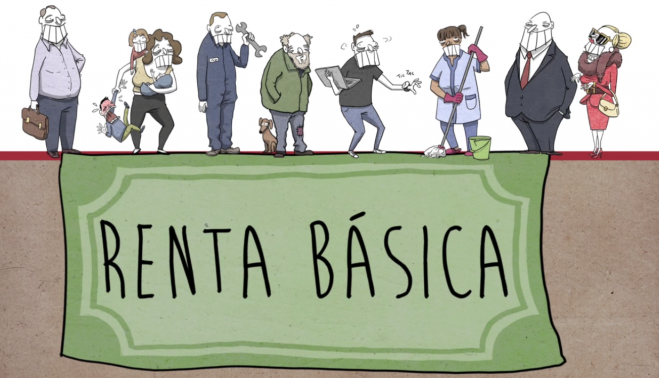The protests that we are experiencing in Spain offer the opportunity to understand how much Spanish society has to do and even the possibility of anticipating greater conflicts that are more difficult to resolve. The attempt, on the part of the Prime Minister, to qualify as negatively as possible the violence that appeared in the protests and the attack on democracy does not seem to be enough; Above all because the harshness of the police responses calls into question the government’s action. I do not see almost anyone, or anyone, encouraging violence in the protests.
Surely, the protests will dissolve due to the fatigue of protesting or not, remains to be seen. But for those who want to know, these protests have a double origin: the concrete discomfort over Hasél’s imprisonment, and the memory of all the other imprisonments or trials, and the democratic ‘malaise in Culture’ that a good part of the Spanish society, including poverty. A malaise that has been increasing since the last abdication, that the pandemic has increased and that can explode us all in the hands. We are in time to openly acknowledge conflicts and find an acceptable solution for them.
There are two main conflicts, that of the lack of democratic quality and that of the sustained and fierce increase in poverty in Spain, aggravated by the lack of perspectives that the pandemic adds due to its management. The conflict over the lack of democratic quality includes the clear sense of widespread injustice in society about the lack of fiscal justice and a progressive tax system. By the way, it is the problem of poverty that has allowed, at least to a large extent, the rise of the extreme right, not only in Spain but in the rest of the world.
One possibility for the future is that of the police state against protests, which will continue to increase and diversify if clear solutions to real conflicts are not proposed. The other possibility is to deal with real conflicts and offer structural solutions in terms of taxes and economic and industrial policies. One of these solutions could be the Universal Basic Income, financed by taxes on the richest, who are the richest because tax policies have been leaving them tax-free for years.
The pandemic has brought to light certain conflicts, especially these two that we are talking about, due to the suspension of constitutional freedoms and the galloping economic crisis that it has produced. The two conflicts came from behind, denied from the governance, permanently ignoring the people, who by millions have been impoverished. The plan, seen from the outside, is for the pandemic to pass and go back to what it was before, recover the old economic regime with a little green color, save Christmas, save Easter, save summer. Better would be to put the economy to save people so that they do what they can and want at Easter, in the summer or whenever. To save the old economy is to continue with the destruction of the Planet and the destruction of the daily lives of millions of people.
The UN says that in Spain 55% of the population has already had difficulty making ends meet. Almost 12 million people were poor before the pandemic began. Spain is the fifth country with the most poor people in the European Union. Spain is a pressure cooker and the solution should not be the police state but the dialogue state, the state of the people for the people. Violence, in the first place that of the State, must be the last possibility, after having exhausted all possibilities for dialogue. But even state violence must be subject to restrictive regulations that prevent violence against people as punishment for going out to protest. Protest is a democratic right that should not be punished in itself.
The protests against the Gag Law, which is ultimately the Law that has been mobilizing a part of Spanish society against it for years, and against crimes that have no comparison in democratic Europe, must be resolved with democracy, with democratic quality : the best fight against the extreme right, which wants to reduce democracy until it disappears.
–


